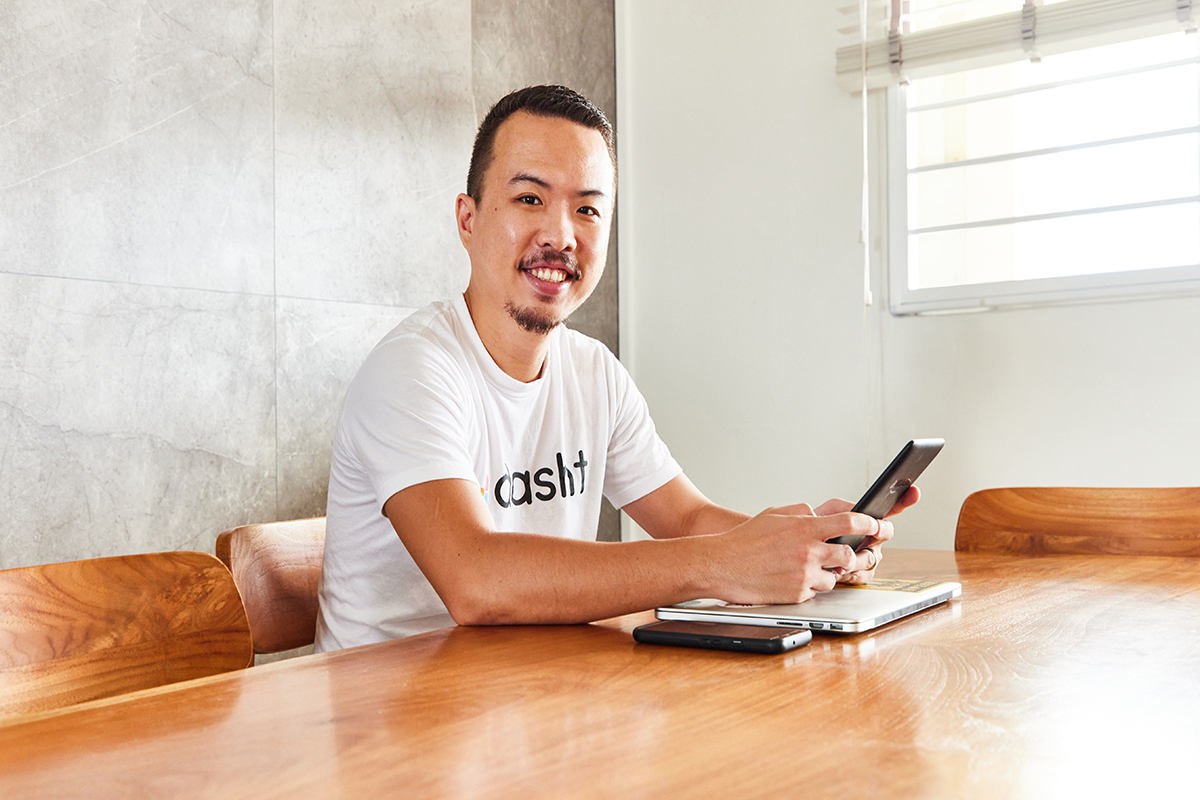
The internet is abuzz with Lenny Letters and Jennifer Lawrence’s incredibly relatable account of her wholly unrelatable problem of making several million dollars fewer than her male co-stars.
As a female partner at a Venture Capital fund in the midst of both investing in tech start ups and fundraising, I share her hesitation to join a “trending” conversation where voicing your opinion and sharing your experience could piss some people off. We all want to be liked.
However, her essay struck a chord for me, as it was just as hypocritical as it was refreshing (don’t worry, Jennifer, I still like you!) She says, “When the Sony hack happened and I found out how much less I was being paid than the lucky people with dicks, I didn’t get mad at Sony. I got mad at myself. I failed as a negotiator because I gave up early.”
It is shocking that even the incredibly badass Jennifer Lawrence is falling into a trap that women have been falling into for thousands of years. It’s a trap called: “It’s not you, it’s me.”
When we are faced with resistance or rejection, no matter how awesome we are, we automatically assume it is our fault. No matter how complex the challenge, we can’t help but wonder, “What did I do wrong? Why am I not good enough?”
This phenomenon is so deeply ingrained within us, we don’t even realize we are doing it. In fact, once we realize we’re doing it, we raise the issue, but somehow still make it our fault. This is frighteningly prevalent in both our personal and professional lives. While it makes us stronger in many respects, it holds us back in countless others.
First, let me start with the personal (even though, as women, we’re really not supposed to do that since it means people may take us less seriously. Fuck that.) I recently spent some time with a pretty attractive man. He was tall, good looking, smart, philosophical, driven, and well educated.
While these things were initially compelling, the more time I spent with him, the more I thought he seemed to be controlling, manipulative, and passive aggressive. Any time he felt insecure, he would dole out reverse compliments that would sound like they were nice, but were actually just quietly insulting enough to make me question myself.
Luckily, I saw through many of his tactics, but for whatever reason, I played along instead of speaking up. I guess I just wanted to be liked. I also happen to be quite charming myself, so I wasn’t totally surprised when he expressed his interest in dating me.
However, when I didn’t reciprocate his affection or enthusiasm, he responded by telling me that he thought I was great, and he knew we could be really great together, but clearly I’m “not emotionally available.” He said that things were unlikely to work, because I was “unwilling to open up.” The idea that something may be suboptimal about him or his behaviour never occurred to him. Instead, my apparent lack of interest was obviously a result of my inadequacy.
This isn’t the first time I’ve heard this speech, either. I’ve been dating men for years who insist that if things are not working, it’s somehow my fault. I was not being loving enough, giving enough, forgiving enough, available enough.
And you know what? I have believed them. It’s only now that I’m now realizing that this is simply the classic male philosophy called “It’s not me, it’s you.”

In many ways, the professional world is even worse at this game. I recently spent a week in New York catching up with various members of the startup and VC community.
Given how much of a topic women in VC and startups are these days (only 8% of VC fund managers are women), many of my conversations revolved around the fact that whether you are an entrepreneur or an investor, being a woman makes you less likely to get funded. End of story. Numbers don’t lie.
Many of the conversations I had about this topic, most of which were with other women, revolved around, “What can we do differently? How can we be more confident? How can we be better negotiators? How can we speak our minds more openly?”
Now, I have dedicated the better part of the last year to raising an early stage fund and, while we have found some fantastic investors so far, I will tell you: it’s fucking hard, no matter what your gender.
However, it has been especially hard as a young woman in a field dominated by men (like I said, 92% of my counterparts are male). I have been all but dismissed from meetings under the assumption I was the secretary.
I have spent an entire hour pitching to someone who refuses to make eye contact with me but instead only directs conversation to my male partner. When my boyfriend (at the time) proposed and I showed up to a meeting with a diamond ring on, a prospective investor asked me, “But, you’re engaged, how will you run a fund? Won’t you be busy planning your wedding?”
And how have I responded?
I couldn’t help but think, “It’s not them, it’s me.” I got mad at myself. I starting wearing glasses to look more serious. I have worked hard on how I speak to avoid sounding too young, too soft, too female. I dress up. I wear heels, but make sure they’re not too tall. I bring male colleagues to meetings with me. I turn off video on virtual meetings so that they can’t see what I look like. I overemphasize my education and my accomplishments. I refuse to tell people how old I am.
Sometimes it works, other times it doesn’t. I’m still fundraising. Don’t get me wrong, I embrace the struggle. I’m crazy like that. And what we do is certainly not a fit for every investor I pitch.
The point is, however, that when things aren’t working, my natural reaction is to get mad at myself and wonder, “What am I doing wrong?”
Contrast this with a male VC I met with in New York last week. Given we are both early in our careers as investors, we were commiserating about the state of fundraising. When he said how difficult it has been to find investors, I said, “It’s fucking hard, isn’t it?” To which he replied, “I know! And it really shouldn’t be!” His fundamental assumption was, “If people don’t want to invest in my fund, it’s not me, it’s them!”
Now, what’s fucked up about this whole situation, is that by bringing this up, I’m essentially falling into the same trap. I’m saying, “It’s our fault for making it our fault!” Actually, blaming ourselves is pretty liberating, because it means we are at least theoretically in control of the situation.
By taking responsibility for the ways we contribute to the glaring injustices and inequalities for women in the business world, we have hope of changing it. Plus, it makes us look thoughtful, insightful, responsible, and definitely not like whiny bitches at all.
However, today, I want to embrace that sometimes, it’s not us. It’s not our fault at all. This is an uphill battle in every way. So, as Jennifer so adeptly put it, “I’m over trying to find the “adorable” way to state my opinion and still be likable! Fuck that.”
Hey, guy who has a nice CV but is kind of an asshole. It’s not me, it’s you.I’m perfectly willing to be available to someone who actually thinks and treats me like I am awesome, not someone who secretly thinks they are better than me.
Hey, investors, startups, I run a venture fund and I am a woman. I don’t need to be any less soft spoken, any more dressed up, any more serious, or any other way to get you to take me seriously or invest with me.
So there, I said it. Let’s break the cycle and stop taking the blame for something that isn’t our fault. Sure, there are things we can do to change it, but it won’t hurt to acknowledge that sometimes, it’s really not me, it’s you.
This post was first published on Medium.
Recommended reads
 A super angel’s guide to being on the better side of fundraising
A super angel’s guide to being on the better side of fundraising The bizdev life of Migs and Jessie
The bizdev life of Migs and Jessie Korean crypto influencer Maeuknam’s tips on profiting during crypto winter
Korean crypto influencer Maeuknam’s tips on profiting during crypto winter Vibe Check: What Grab is doing to help employees with their mental well-being
Vibe Check: What Grab is doing to help employees with their mental well-being Vibe Check: Mental health in the startup world
Vibe Check: Mental health in the startup world A startup’s guide to performance management in a remote-work environment
A startup’s guide to performance management in a remote-work environment Vibe Check: Coming back from the brink of oblivion
Vibe Check: Coming back from the brink of oblivion Runway? Check. Users? Check. I still killed my startup
Runway? Check. Users? Check. I still killed my startup Why paying attention to investor backchanneling is a good call
Why paying attention to investor backchanneling is a good call Vibe Check: The lonely, stressful entrepreneur life
Vibe Check: The lonely, stressful entrepreneur life









